USADA announced today that Frank Travieso, of Athens, Ga., an athlete in the sport of cycling, has accepted a six-month period of ineligibility for an anti-doping rule violation after testing positive for a prohibited substance.
Travieso, 43, tested positive for ephedrine at a concentration greater than the threshold of 10 micrograms per milliliter as the result of a urine sample collected at the Bommarito Audi Gateway Cup on September 3, 2023. Ephedrine is a Specified Substance in the class of Stimulants and is prohibited in-competition under the USADA Protocol for Olympic and Paralympic Movement Testing, the United States Olympic Committee National Anti-Doping Policies, and International Cycling Union (UCI) Anti-Doping Rules, all of which have adopted the World Anti-Doping Code and the World Anti-Doping Agency (WADA) Prohibited List.
After investigating, USADA determined that Travieso was using a medication containing ephedrine, which he obtained over the counter at the direction of a physician, but he lacked a valid Therapeutic Use Exemption (TUE). Under the USADA TUE Policy, an athlete has the responsibility to demonstrate that the therapeutic need to treat an acute or chronic medical condition satisfies the strict criteria within the WADA International Standard for TUEs (ISTUE). Upon review, Travieso did not qualify for a retroactive TUE.
Travieso’s six-month period of ineligibility began on September 21, 2023, the date his provisional suspension was imposed. In addition, Travieso has been disqualified from all competitive results obtained on and subsequent to September 3, 2023, the date his positive sample was collected, including forfeiture of any medals, points and prizes.
The FEI Tribunal has issued a Consent Award in an equine anti-doping case involving a Banned Substance.
In this case, the horse Ashva Psyche (FEI ID 107YL76/URU), tested positive for the Banned Substance Stanozolol following samples taken at the CEI2*120 Costa Azul, Canelones (URU) 04-05 November 2023.
The athlete, Teresa Sanchez (FEI ID 10094966/URU), admitted the rule violation and accepted the consequences. In its final decision the FEI Tribunal disqualified the horse from the event and imposed an 18-month ineligibility period on the athlete; the provisional suspension she already served shall be credited against the imposed ineligibility period. She was also fined CHF 5,000 and all results from the event were disqualified.
The full Decision is available here.
USADA announced today that Tyler Sundeen, of Simi Valley, Calif., an athlete in the sport of field hockey, has accepted a six-month sanction for an anti-doping rule violation.
Sundeen, 30, tested positive for ritalinic acid, a methylphenidate metabolite, as the result of an in-competition sample collected at the Cal Cup Tournament on May 27, 2023. He also declared the use of this substance during sample collection. Methylphenidate is a Specified Substance in the class of stimulants and is prohibited in-competition under the USADA Protocol for Olympic and Paralympic Movement Testing, the United States Olympic and Paralympic Committee National Anti-Doping Policies, and the International Hockey Federation Anti-Doping Rules, all of which have adopted the World Anti-Doping Code and the World Anti-Doping Agency (WADA) Prohibited List.
After investigating, USADA determined that Sundeen was taking methylphenidate at the direction of a physician but lacked a valid Therapeutic Use Exemption (TUE). Under the USADA TUE Policy, an athlete has the responsibility to demonstrate that the therapeutic need to treat an acute or chronic medical condition satisfies the strict criteria within the WADA International Standard for TUEs (ISTUE). Although the substance was taken at the direction of a physician, Sundeen lacked a valid Therapeutic Use Exemption (TUE) and his subsequent application for a retroactive and prospective TUE, reviewed by the independent USADA TUE Committee of expert physicians, was denied due to lack of sufficient medical justification. Under the applicable rules, Sundeen was eligible for a reduction from the default period of ineligibility based on the specific circumstances of his case.
Sundeen’s six-month period of ineligibility began on June 16, 2023, the date his provisional suspension was imposed. Sundeen has been disqualified from all competitive results obtained on and subsequent to May 27, 2023 including forfeiture of any medals, points, and prizes.
In an effort to aid athletes, as well as support team members such as parents and coaches, in understanding the rules applicable to them, USADA provides comprehensive instruction on its website on the testing process and prohibited substances, how to file and update athlete Whereabouts, how to obtain permission to use a necessary medication, and the risks and dangers of taking supplements, as well as performance-enhancing and recreational drugs.
In addition, USADA manages a drug reference hotline, Global Drug Reference Online (GlobalDRO.com), conducts educational sessions with National Governing Bodies and their athletes, and distributes a multitude of educational materials, such as a supplement guide, a nutrition guide, a clean sport handbook, and periodic alerts and advisories.
USADA makes available a number of ways to report the abuse of performance-enhancing drugs in sport in an effort to protect clean athletes and promote clean competition. Any tip can be reported using the USADA Play Clean Tip Center, by text at 87232 (“USADA”), by email at This email address is being protected from spambots. You need JavaScript enabled to view it., by phone at 1-877-Play Clean (1-877-752-9253) or by mail.
USADA is responsible for the testing and results management process for athletes in the U.S. Olympic and Paralympic Movement and is equally dedicated to preserving the integrity of sport through research initiatives and educational programs.
USADA announced today that Ina Pfuhler, of Cincinnati, Ohio, an athlete in the sport of cycling, has accepted a two-year sanction for an anti-doping rule violation.
Pfuhler, 55, tested positive for an anabolic agent as the result of an in-competition sample collected at the Gran Fondo National Championship on September 17, 2023, a highly regarded cycling event where she placed second overall. Her urine sample was analyzed using a specialized test that differentiates between anabolic androgenic steroids naturally produced by the body and prohibited anabolic agents of external origin. She also declared the use of this substance in a follow-up email to USADA immediately following sample collection.
Anabolic agents, including testosterone, are Non-Specified Substances in the class of Anabolic Agents and are prohibited at all times under the USADA Protocol for Olympic and Paralympic Movement Testing, the United States Olympic and Paralympic Committee National Anti-Doping Policies, and the International Cycling Union Anti-Doping Rules, all of which have adopted the World Anti-Doping Code and the World Anti-Doping Agency (WADA) Prohibited List.
After investigating, USADA determined that Pfuhler was taking testosterone at the direction of a physician but lacked a valid Therapeutic Use Exemption (TUE). Under the USADA TUE Policy, an athlete has the responsibility to demonstrate that the medical need to treat an acute or chronic condition satisfies the strict criteria within the WADA International Standard for TUEs (ISTUE). Anabolic agents like testosterone have powerful performance-enhancing capabilities and can give an athlete an unfair advantage over fellow competitors, which is why criteria must be fulfilled beyond merely providing a prescription.
Pfuhler’s two-year period of ineligibility began on December 7, 2023, the date her provisional suspension was imposed. Pfuhler has been disqualified from all competitive results obtained on and subsequent to September 17, 2023 including forfeiture of any medals, points, and prizes.
In an effort to aid athletes, as well as support team members such as parents and coaches, in understanding the rules applicable to them, USADA provides comprehensive instruction on its website on the testing process and prohibited substances, how to file and update athlete Whereabouts, how to obtain permission to use a necessary medication, and the risks and dangers of taking supplements, as well as performance-enhancing and recreational drugs.
In addition, USADA manages a drug reference hotline, Global Drug Reference Online (GlobalDRO.com), conducts educational sessions with National Governing Bodies and their athletes, and distributes a multitude of educational materials, such as a supplement guide, a nutrition guide, a clean sport handbook, and periodic alerts and advisories.
USADA makes available a number of ways to report the abuse of performance-enhancing drugs in sport in an effort to protect clean athletes and promote clean competition. Any tip can be reported using the USADA Play Clean Tip Center, by text at 87232 (“USADA”), by email at This email address is being protected from spambots. You need JavaScript enabled to view it., by phone at 1-877-Play Clean (1-877-752-9253) or by mail.
USADA is responsible for the testing and results management process for athletes in the U.S. Olympic and Paralympic Movement and is equally dedicated to preserving the integrity of sport through research initiatives and educational programs.
UK Anti-Doping (UKAD) has today confirmed that Rugby League player Tobias Richardson received a three-month ban from all sport following an Anti-Doping Rule Violation (ADRV) for the presence of a Prohibited Substance in his urine Sample. At the time of this announcement, the ban has been served and the player is free to resume participation in sport.
On 2 July 2023, UKAD collected an In-Competition urine Sample from Mr Richardson at a game between Midlands Hurricanes and Dewsbury Rams. Analysis of Mr Richardon’s urine Sample returned an Adverse Analytical Finding (AAF) for cocaine and its Metabolite, benzoylecgonine.
Cocaine is listed under section S6A of the World Anti-Doping Agency (WADA) 2023 Prohibited List as a stimulant. It is a non-Specified Substance that is prohibited In-Competition only. The WADA 2023 Prohibited List also identifies cocaine as a ‘Substance of Abuse’.
The UK Anti-Doping Rules (ADR), which implement the 2021 World Anti-Doping Code for sports in the UK, set out specific rules on how ADRVs relating to Substances of Abuse should be managed. Shorter bans of three months are available for such substances when found In-Competition if their ingestion takes place Out-of-Competition and in a context unrelated to sport performance.
On 17 August 2023, UKAD notified Mr Richardson that he may have committed ADRVs in violation of the ADR. Mr Richardson was also provisionally suspended from this date.
On 22 August 2023, Mr Richardson admitted that he had taken cocaine and that he had ingested it recreationally while in a social setting during the Out-of-Competition period on Friday 30 June 2023. UKAD instructed a scientific expert to examine whether the concentration of cocaine and benzoylecgonine detected in Mr Richardson’s Sample was consistent with the explanation he provided. The scientific expert’s opinion was that the Athlete’s explanation - that the cocaine had likely been consumed during the Out-of-Competition period - was scientifically plausible.
Mr Richardson was charged by UKAD on 12 October 2023 with the commission of an ADRV under ADR Article 2.1 (Presence of a Prohibited Substance or its Metabolites or Markers in an Athletes Sample). The player responded on 23 October 2023 accepting the charge and agreeing to the period of Ineligibility of three months asserted by UKAD.
Mr Richardson has been afforded credit for the time he has spent provisionally suspended. His period of Ineligibility was lifted on 16 November 2023.
Speaking on the case, UKAD Director of Operations, Hamish Coffey said:
“Cocaine is prohibited in sport. It’s a harmful drug and violates the spirit of sport. The rules are clear on substances of abuse. Athletes risk their careers and their reputations by using cocaine.”
The Rugby Football League and Rugby League Cares, the sport’s independent charity which leads on player welfare, added:
“Rugby League supports UKAD in its testing programme of players at all levels of the sport, in and out of competition, and in this case specifically the recent introduction of the Substance of Abuse programme following positive tests for recreational drugs – supporting players in recognising the dangers of substance misuse, and explaining the range of options for ongoing support – which in Rugby League is led by Rugby League Cares.”
The Canadian Centre for Ethics in Sport (CCES) announced today that Jonathan Stanley, a powerlifting athlete, received a three-year sanction for an anti-doping rule violation. The athlete’s urine sample, collected in competition on June 3, 2023, revealed the presence of trenbolone, oxandrolone, clostebol, nandrolone, drostanolone, and testosterone, six prohibited anabolic agents, as well as methylphenidate, a prohibited specified stimulant.
On August 12, 2023, the athlete signed an Early Admission and Acceptance of Sanction, thereby admitting to the violation and accepting the asserted period of ineligibility and all other consequences. As a result, the otherwise applicable four-year period of ineligibility was reduced by one year in accordance with Canadian Anti-Doping Program (CADP) rule 10.8.1. Because the athlete was provisionally suspended, the sanction terminates on July 24, 2026.
During the sanction period, the athlete is ineligible to participate in any capacity with any sport signatory to the CADP or the World Anti-Doping Code, including training with teammates.
In compliance with rule 8.4 of the CADP, the CCES’s file outcome summary can be found in the Canadian Sport Sanction Registry.
World Triathlon reports that a sample collected from Alexander Bryukhankov, a triathlete from Russia, has returned an Adverse Analytical Finding (AAF) for recombinant Erythropoietin (EPO) (S.2 Peptide, Hormones, Growth Factors, Related Substances, and Mimetics).
The International Testing Agency (ITA) confirms that the International Weightlifting Federations’ (IWF’s) Member Federation Independent Sanctioning Panel has imposed a one-year suspension against the Romanian Weightlifting Federation as a consequence of numerous Anti-Doping Rule Violations.
USADA announced today that an independent arbitrator has rendered a decision in the case of Brazilian Jiu-Jitsu athlete Andre Luiz Novaes Porfirio, of Miami, FL. After an evidentiary hearing on November 28, 2023, where both Porfirio and USADA were provided a full opportunity to present their cases and witnesses to the independent arbitrator, the arbitrator determined that Porfirio will receive a four-year sanction for multiple anti-doping rule violations. These violations occurred as a result of testing and intelligence from the International Brazilian Jiu-Jitsu Federation (IBJJF) World No-Gi Championship event in December 2022.
“Powerful performance-enhancing substances are a threat to both the safety of competitors and the integrity of competition,” said USADA CEO Travis T. Tygart. “Robust testing and investigations, paired with an unflinching commitment to pursuing the truth, is absolutely necessary to ensuring that those who seek an unfair advantage are held accountable.”
Although the IBJJF is not a signatory to the World Anti-Doping Code, USADA was contracted by IBJJF to conduct the testing and results management program for the event, which also includes post-event out-of-competition testing. IBJJF has agreed to impose the below sanction.
The independent arbitrator determined that Porfirio, 26, committed two counts of evading sample collection by first fleeing the venue at the World No-Gi Championship on December 11, 2022 when he learned there would be testing. Porfirio again evaded sample collection on December 20, 2022, when USADA attempted to collect an out-of-competition urine sample, which Porfirio eventually provided. Evading sample collection, or refusing or failing to submit to sample collection, without compelling justification is a doping violation under the World Anti-Doping Code.
During USADA’s investigation into the circumstances of Porfirio’s first violation, the athlete admitted to using the prohibited substance testosterone prior to the World No-Gi Championship. Porfirio’s sample collected on December 20 also returned an atypical finding for testosterone and its metabolites after analysis using a specialized test known as Isotope Ratio Mass Spectrometry (IRMS), which is capable of measuring the carbon isotope ratio of urinary steroids, such as testosterone and its metabolites, and confirming their synthetic origin. IRMS is a powerful tool that unequivocally differentiates between anabolic androgenic steroids (AAS) naturally produced by the body and AAS of synthetic origin. Anabolic agents have powerful performance-enhancing capabilities and can give an athlete an unfair advantage over fellow competitors. IRMS testing confirmed that the prohibited anabolic agents detected in the athletes’ samples were consistent with external origin. Based on the admission of use and the atypical finding, the arbitrator concluded that Porfirio committed violations for presence of exogenous testosterone in his sample, as well as the use and/or attempted use of exogenous testosterone.
Porfirio’s four-year period of ineligibility began on March 21, 2023, the date his provisional suspension was imposed. In addition, Porfirio has been disqualified from all competitive results achieved in competitions sanctioned by the IBJJF, or any Code signatory, on and subsequent to December 8, 2022, the approximate first date he used testosterone, to March 21, 2023, the first day of his provisional suspension, including forfeiture of any medals, points, and prizes.
This decision, as well as other arbitral decisions, can be found here.
The International Tennis Integrity Agency (ITIA) today confirms that Russian tennis player Vladislav Ivanov has been suspended from the sport for a period of four years by an independent tribunal following a breach of the Tennis Anti-Doping Programme (TADP).
On 14 September 2022 at the M15 tournament in Morocco, Ivanov was notified to provide an in-competition urine sample and refused to do so, leaving the tournament venue. Although the player later returned to provide a sample, they were charged with an Anti-Doping Rule Violation under article 2.3 of the TADP for refusing to provide a sample when asked to do so.
Ivanov, who had a career-high world singles ranking of 835 in September 2022, requested a hearing before an independent tribunal convened by Sport Resolutions. The hearing was held remotely in November 2023. The Independent Tribunal determined that Mr. Ivanov’s conduct was intentional, within the meaning of TADP Article 10.2.3, and so imposed a period of ineligibility of four years. Results obtained at the Morocco event were also disqualified with forfeiture of ranking points and prize money. The panel noted that the player had received ITIA education about the anti-doping process and had provided a sample two weeks previously, therefore should have been aware of the rules.
The suspension will run from the date of the decision (21 December 2023) until midnight on 20 December 2027.
Karen Moorhouse, CEO of the ITIA, commented: “A player refusing to undertake a test is rare, but this sends a powerful message to any sportsperson about the devastating consequences if they do.
"We strongly urge players who are selected for testing to provide their sample at the earliest opportunity, listen carefully to instructions given to them by the Doping Control Officer and be chaperoned from the moment of notification through to sample collection. We understand that the testing process can be inconvenient, but it is vital in the fight for a clean sport.”
In accordance with TADP Article 10.14, during the period of ineligibility, the player is prohibited from playing in, coaching at, or attending any tennis event authorised or sanctioned by the members of the ITIA (ATP, ITF, WTA, Tennis Australia, French Tennis Federation, Wimbledon and USTA) or any national association.
The ITIA is an independent body established by its tennis members to promote, encourage, enhance, and safeguard the integrity of professional tennis worldwide.
Polish professional boxer Krzysztof Glowacki has been banned from all sport for a period of four years following Anti-Doping Rule Violations (ADRVs) for the Presence and Use of a Prohibited Substance.
On 21 January 2023, UKAD collected an In-Competition urine Sample from Mr Glowacki after his fight against Richard Riakporhe at the AO Arena in Manchester. Analysis of Mr Glowacki’s Sample returned an Adverse Analytical Finding (AAF) for boldenone and its Metabolite, 17β-hydroxy-5β-androst-1-en-3-one.
Boldenone is listed under section S1 of the World Anti-Doping Agency (WADA) 2023 Prohibited List as an anabolic androgenic steroid. It is a non-Specified substance that is prohibited in sport at all times.
On 6 April 2023, UKAD notified Mr Glowacki that he may have committed two ADRVs contrary to Article 2.1 (Presence of a Prohibited Substance in an Athlete’s Sample) and 2.2 (Use or Attempted Use by an Athlete of a Prohibited Substance or Prohibited Method) of the 2021 UK Anti-Doping Rules (‘ADR’). UKAD also provisionally suspended Mr Glowacki from all Code-compliant sport from this date.
On 2 June 2023, UKAD charged Mr Glowacki with both ADRVs. Mr Glowacki responded on 12 June 2023, denying the ADRVs and asserting that he had not taken any Prohibited Substance.
Mr Glowacki’s case was heard by the independent National-Anti-Doping Panel (NADP) on 31 October 2023. The NADP issued a decision on 21 November 2023 which imposed a period of Ineligibility of four years. Mr Glowacki’s period of Ineligibility commenced on 6 April 2023 and will expire at 11:59pm on 5 April 2027.
Speaking on the case, Hamish Coffey, UKAD Director of Operations said: “It is very important that athletes respect the rules and understand their responsibilities to uphold clean sport. Boldenone, as with all steroids, is performance enhancing and undermines the integrity of sport. There is no place for steroids in sport.”
Rugby League player, Harry Tyson-Wilson has been banned from all sport for a period of three years following Anti-Doping Rule Violations (ADRVs) for Use and Possession of a Prohibited Substance.
On 18 May 2022, UKAD received information from the police regarding the production, manufacture, and supply of Prohibited Substances by and to a number of individuals. UKAD commenced an investigation and was subsequently able to identify Rugby League player Mr Tyson-Wilson as one of the purchasers of the Prohibited Substances.
Evidence obtained by UKAD showed that on 6 March 2019, Mr Tyson-Wilson made a purchase of dianabol, a variant of metandienone. Metandienone is listed under S1(1) of the 2019 WADA Prohibited List as an Anabolic Androgenic Steroid and is a non-Specified Substance, which is prohibited at all times.
UKAD interviewed Mr Tyson-Wilson on 7 March 2022, where he admitted to purchasing metandienone online in March 2019 and paying for it to be delivered to his home address. Mr Tyson-Wilson also accepted being in possession of the Prohibited Substance after its arrival at his home address.
On 12 April 2023, UKAD notified Mr Tyson-Wilson that he may have committed two ADRVs contrary to Article 2.2 (Use or Attempted Use by an Athlete of a Prohibited Substance or Prohibited Method), and Article 2.6 (Possession of a Prohibited Substance and/or a Prohibited Method) of the 2015 UK Anti-Doping Rules (‘2015 ADR’). UKAD provisionally suspended the player from this date.
On 18 May 2023, Mr Tyson-Wilson was charged by UKAD with both ADRVs. The player responded on 7 June 2023 admitting the charges and accepting the asserted period of Ineligibility of four years.
Mr Tyson-Wilson benefited from a one-year reduction to his ban after admitting the violation and accepting the asserted period of Ineligibility within 20 days of receiving the Charge (pursuant to 2021 ADR Article 10.8.1).
Mr Tyson-Wilson’s period of Ineligibility is deemed to have commenced from the date of his Provisional Suspension on 12 April 2023 and will end at midnight on 11 April 2026.
Speaking on the case, Hamish Coffey, UKAD Director of Operations, said:
“Anabolic steroids have no place in sport. There are serious consequences for any Athlete caught in possession of them. It’s imperative that Athletes respect their responsibilities under the Anti-Doping Rules and conduct themselves with integrity both on and off the field.
“This case is a further example of the strong strategic collaborations UKAD has in place with law enforcement partners, and we thank them for their continued support in UKAD’s delivery of intelligence-led anti-doping programmes.”
The Rugby Football League added, “We support UKAD in their determination to ensure that sport is clean, and in working with other law enforcement partners to do so.”
UK Anti-Doping (UKAD) has today confirmed that Rugby League player Harry Aaronson received a one-month ban from all sport following an Anti-Doping Rule Violation (ADRV) for the presence of a Prohibited Substance in his urine Sample. At the time of this announcement, the ban has been served and the player is free to resume participation in sport.
On 21 May 2023, UKAD collected an In-Competition urine Sample from Mr Aaronson at a Betfred League 1 game between Rochdale Hornets and Cornwall RLFC. Analysis of this Sample returned an Adverse Analytical Finding (AAF) for cocaine and its Metabolite benzoylecgonine.
Cocaine is listed under section S6A of the World Anti-Doping Agency (WADA) 2023 Prohibited List as a stimulant. It is a non-Specified Substance that is prohibited In-Competition only and known as a ‘Substance of Abuse’.
The UK Anti-Doping Rules (ADR), which implement the 2021 World Anti-Doping Code for sports in the UK, set out specific rules on how ADRVs relating to Substances of Abuse should be managed. Shorter bans of three months are available for such substances when found In-Competition if their ingestion takes place Out-of-Competition and in a context unrelated to sport performance. A further reduction in the length of ban, down to one-month, is available if an Athlete satisfactorily completes a Substance of Abuse treatment programme approved by UKAD.
On 3 July 2023, UKAD notified Mr Aaronson that he may have committed ADRVs in violation of the ADR. Mr Aaronson was also provisionally suspended from this date.
On 7 and 14 July 2023, Mr Aaronson responded to UKAD’s notice letter, admitting that he had taken cocaine recreationally in a social setting during the Out-of-Competition period. UKAD instructed a scientific expert to examine whether the concentration of cocaine and its Metabolite benzoylecgonine detected in Mr Aaronson’s Sample was consistent with the explanation he provided. The scientific expert’s opinion was that Mr Aaronson’s explanation was plausible.
UKAD charged Mr Aaronson on 1 September 2023 with the commission of an ADRV under ADR Article 2.1 (presence of a Prohibited Substance or its Metabolites or Markers in an Athlete’s Sample). On 4 September 2023, Mr Aaronson accepted the charge and informed UKAD that he had completed a Substance of Abuse treatment programme, and shared the treatment programme report with UKAD. UKAD reviewed the contents of the report and in accordance with its own policy ‘Substances of Abuse: Policy for determining approved treatment programmes’ was able to grant a reduced period of Ineligibility of one month.
Mr Aaronson has been afforded credit for the time he has spent provisionally suspended (since 3 July 2023). Mr Aaronson’s period of Ineligibility is therefore deemed served and he is free to resume participation in sport.
Speaking on the case, UKAD Director of Operations, Hamish Coffey said:
“Athletes need to abide by the Anti-Doping Rules and know that using cocaine and other ‘recreational drugs’ Out-of-Competition can still result in a ban from sport.
“These drugs carry serious health risks to Athletes. The Substance of Abuse treatment programme helps Athletes recognise the dangers of substance misuse and identify where to turn to for support in the future.”
The Rugby Football League and Rugby League Cares, the sport’s independent charity which leads on player welfare, added:
“Rugby League supports UKAD in its testing programme of players at all levels of the sport, in and out of competition, and in this case specifically the recent introduction of the Substance of Abuse programme following positive tests for recreational drugs – supporting players in recognising the dangers of substance misuse, and explaining the range of options for ongoing support – which in Rugby League is led by RL Cares.”
The International Testing Agency (ITA) reports that it has issued the decision to sanction Moldovan doctor Dorin Balmus to a lifetime period of ineligibility due to anti-doping rule violations (ADRV) for tampering and complicity.
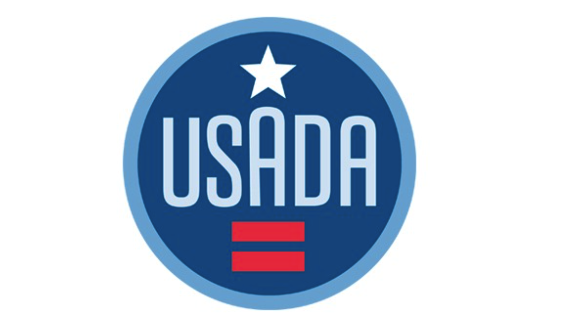


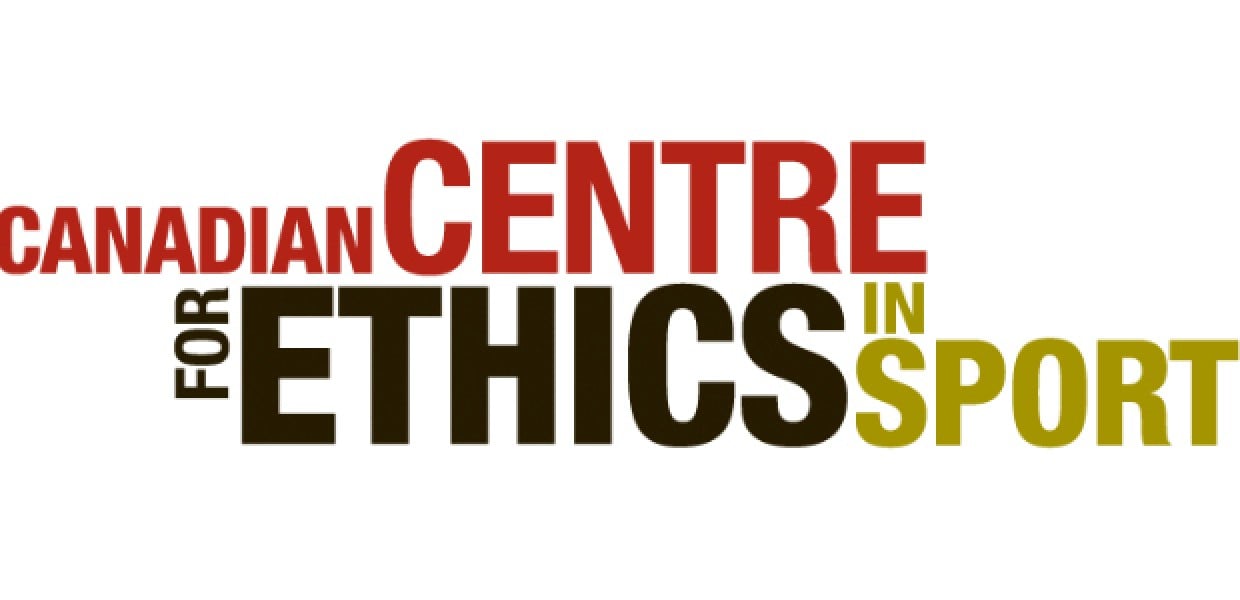
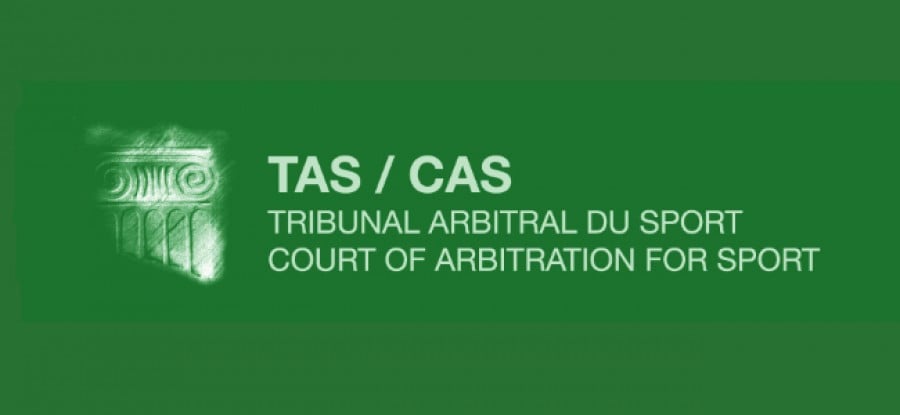
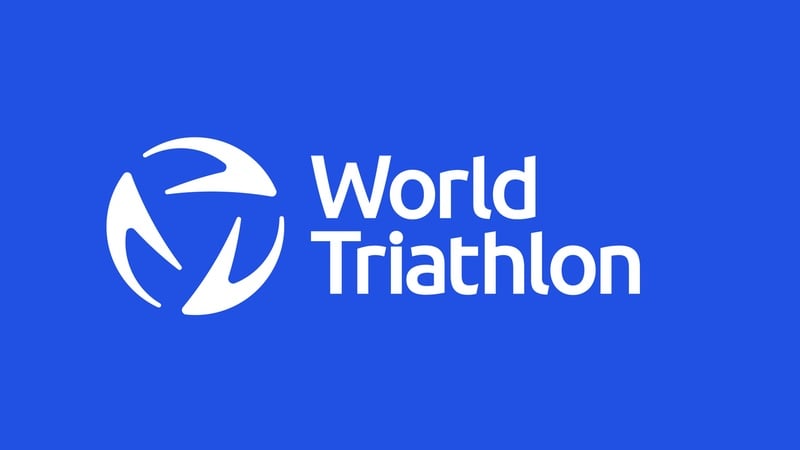

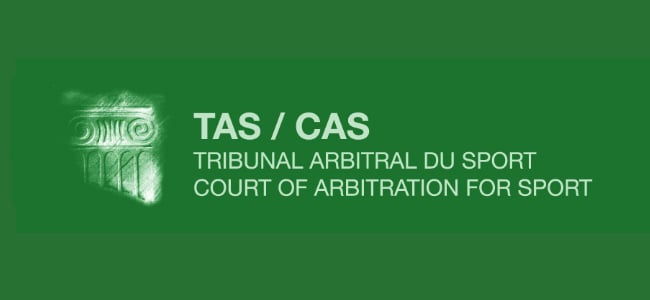
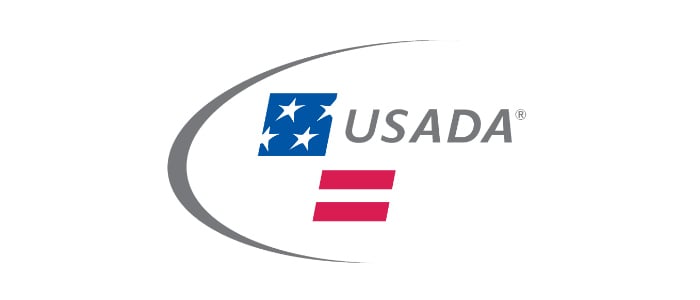
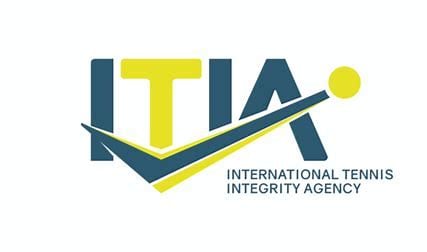

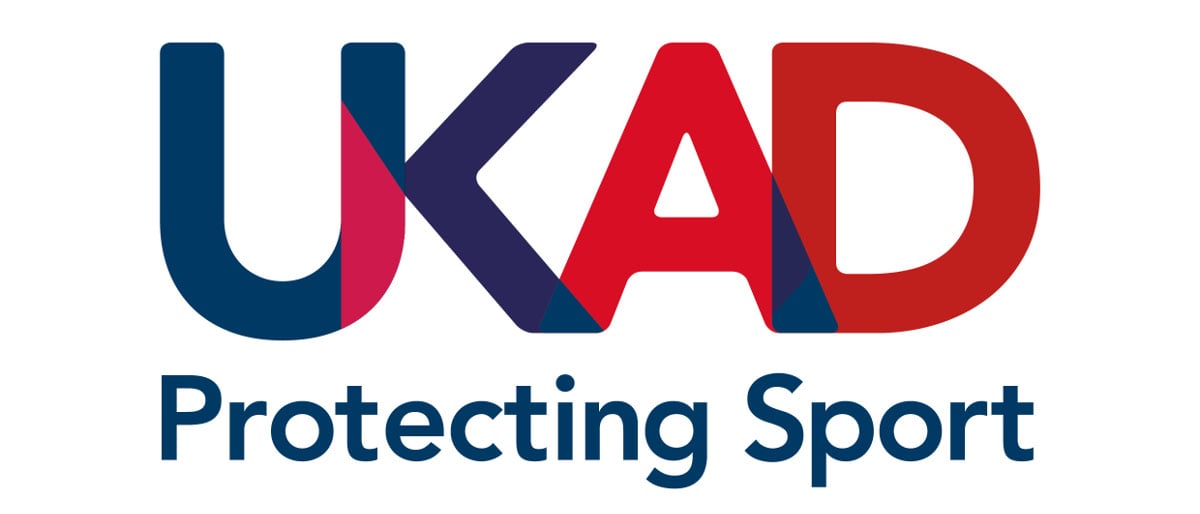
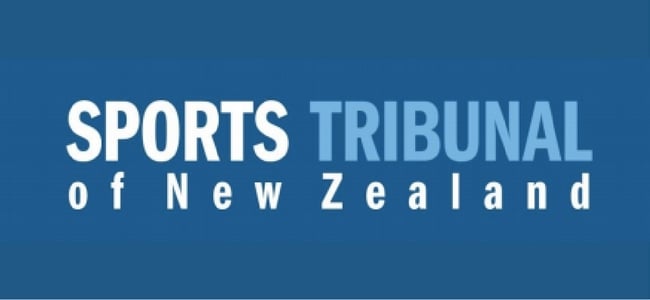
 Global Summit 2024
Global Summit 2024